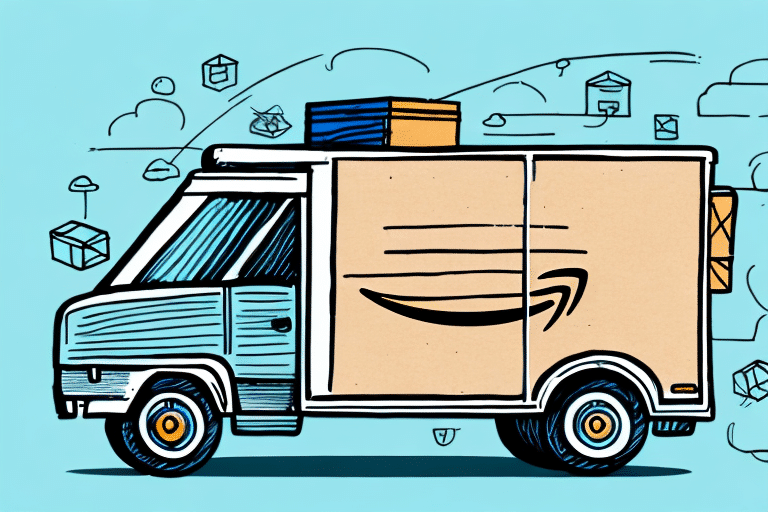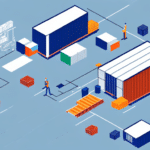Amazon's Transition to a Full Shipping Carrier
Amazon has officially achieved Full Carrier status, marking a significant milestone in the e-commerce and logistics sectors. This strategic move allows Amazon to enhance its shipping capabilities, directly competing with established carriers like UPS and FedEx. By expanding its logistics infrastructure, Amazon aims to offer faster delivery times, more shipping options, and competitive pricing to consumers.
Expansion of Amazon's Logistics Network
In-House Fleet Development
Over the past few years, Amazon has invested heavily in building its own fleet of planes, delivery vans, and trucks. According to Amazon's 2023 annual report, the company now operates over 400 aircraft and has expanded its delivery fleet to include thousands of vans across the United States.
Amazon Flex and Gig Economy Integration
Amazon Flex allows independent contractors to deliver packages using their personal vehicles, providing flexibility and scalability to Amazon's delivery operations. This model has enabled Amazon to increase its delivery capacity during peak seasons without the long-term commitments associated with traditional employment.
Strategic Fulfillment Centers
Amazon has established a vast network of fulfillment centers strategically located to optimize delivery routes and reduce shipping times. These centers utilize advanced robotics and automation to streamline order processing, ensuring efficient and timely deliveries.
Consumer Benefits from Amazon's Carrier Status
Enhanced Delivery Speed and Reliability
With control over the entire shipping process, Amazon can offer expedited shipping options such as same-day and next-day deliveries for a broader range of products. A study by Cushman & Wakefield in 2023 highlighted that Amazon's average delivery time has decreased by 20% since expanding its logistics network.
Cost Savings on Shipping
By minimizing reliance on third-party carriers, Amazon can negotiate better shipping rates. These savings are often passed on to consumers in the form of lower shipping costs or bundled free shipping for Amazon Prime members.
Flexible Delivery Options
Amazon provides customers with a variety of delivery options, including scheduled delivery windows, pickup locations, and Amazon Lockers. This flexibility caters to diverse consumer needs and enhances the overall shopping experience.
Implications for the E-commerce Industry
Market Dominance and Competitive Pressure
Amazon's enhanced shipping capabilities solidify its position as a dominant player in the e-commerce market. This increased market share exerts competitive pressure on both traditional retailers and smaller e-commerce businesses to innovate and improve their logistics operations.
Innovation and Technological Advancements
Amazon's investment in technologies like drone deliveries and autonomous vehicles is pushing the boundaries of logistics innovation. According to a McKinsey report, autonomous delivery could reduce shipping costs by up to 40% in the next decade, a trend that Amazon is actively pursuing.
Cross-Industry Disruption
Amazon's logistics expertise is not limited to e-commerce. The company is expanding into sectors such as healthcare and grocery delivery, offering specialized shipping solutions that challenge existing players in these industries.
Impact on Traditional Shipping Companies
Increased Competition
Traditional carriers like UPS and FedEx now face heightened competition as Amazon leverages its extensive logistics network to offer similar or superior shipping services. This competition drives these companies to innovate and improve their own service offerings.
Shift in Market Dynamics
Amazon's direct shipping approach reduces its reliance on third-party carriers, potentially leading to a decline in business for companies that previously provided shipping services to Amazon. According to a Forbes analysis, this shift is likely to prompt traditional carriers to diversify their services and explore new revenue streams.
Innovative Logistics Strategies by Amazon
Utilization of Predictive Analytics
Amazon employs predictive analytics to forecast customer demand and optimize inventory placement. This technology ensures that products are available closer to consumers, reducing delivery times and improving service efficiency.
Investment in Advanced Technologies
From deploying drones for last-mile deliveries to experimenting with autonomous delivery robots, Amazon is at the forefront of integrating advanced technologies into its logistics operations. These innovations not only enhance delivery speed but also contribute to cost reductions.
Strategic Partnerships
While building its own logistics network, Amazon continues to collaborate with traditional carriers for specific delivery needs. This hybrid approach allows Amazon to maintain flexibility and scalability in its shipping operations.
Enhancing the Customer Experience
Real-Time Package Tracking
Amazon provides detailed, real-time tracking information for all shipments, allowing customers to monitor their packages throughout the delivery process. This transparency enhances trust and satisfaction among consumers.
Customized Delivery Options
Customers can choose from various delivery preferences, including specific delivery time slots, alternative delivery addresses, and secure pickup locations. These options cater to individual schedules and security needs.
Commitment to Sustainability
Amazon is also focusing on sustainable delivery practices, such as using electric delivery vehicles and optimizing delivery routes to reduce carbon emissions. These efforts appeal to environmentally conscious consumers and contribute to a greener supply chain.
The Future of E-commerce Shipping
Amazon's progression to a Full Carrier status is reshaping the future of e-commerce shipping. Continued advancements in technology and logistics will likely lead to even faster, more efficient, and cost-effective delivery solutions. Consumers can anticipate greater convenience, enhanced delivery options, and improved overall shopping experiences as Amazon and other players in the industry continue to innovate.
Moreover, the integration of artificial intelligence and machine learning in logistics operations will drive further optimizations, ensuring that e-commerce continues to evolve in response to consumer demands and market trends.
Conclusion
Amazon's achievement of Full Carrier status signifies a transformative era in the e-commerce and logistics industries. By enhancing its shipping capabilities, Amazon not only elevates the consumer experience but also sets new standards for delivery efficiency and innovation. As the company continues to invest in its logistics network and explore cutting-edge technologies, the ripple effects on traditional retailers and shipping companies will be profound, fostering a more competitive and dynamic market landscape.






















